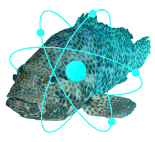Speaker
Description
The Radiochemistry group at Politecnico di Milano is active in several cutting-edge research topics in the areas of Radiochemistry and Radiation Chemistry. Thanks to the availability of the New Integrated Nuclear Laboratories at Campus Bovisa in Milano, the research group is able to develop education & training activities within the Master degree course in Nuclear Engineering and the Doctoral programme in Energy and Nuclear Science and Technology, as well as R&D activities at national and international level.
Since 2002 the Radiochemistry group is involved in European projects focusing on the hydrometallurgical reprocessing of spent nuclear fuel and, in particular, on the partitioning of minor actinides. The collaboration with Italian and European universities and research institutes enabled to reach relevant scientific results providing fruitful opportunities for student exchanges.
Within the research activities dedicated to the development of Lead-cooled Fast Reactors, the Radiochemistry group has started in 2011 a R&D program focused on getting new insights on the chemical compatibility of lead with the different reactor components by both a theoretical and experimental approach.
Recently, the Radiochemistry lab has been involved in preliminary decommissioning activities of Politecnico di Milano nuclear research reactor, located in Leonardo Campus and shut-down in 1979. Several samples have already been collected, both from surrounding topsoil and from facility components, and analysed to assess target radionuclide activity concentration. Moreover, within an IAEA collaborative research project, an integrated Monte Carlo approach has been developed to study materials activation and support forthcoming radiological characterization campaign.
Within the area of the Radiation Chemistry, the research activities aim at studying the radiation-induced modifications in dosimetric systems for therapy in nuclear medicine, as well as in organic and inorganic matrices for industrial applications. Research in the field of dosimetry is focused around the development, characterization and optimization of gel-based systems, for use in clinical oriented applications; the group also employs advanced imaging techniques oriented towards tridimensional dose mapping in tissue equivalent phantoms, such as Magnetic Resonance Imaging and spatial absorbance measurements.
Experimental activities have been addressed to investigate the effects of ionizing radiation on the physical-chemical properties of commercial/newly synthesized polymers. In particular, in order to face the increasing pollution due to the accumulation of plastic waste in the environment, focused studies are ongoing to evaluate if a radiation treatment of plastics could represent an effective pre-treatment to improve their biodegradation.
Concerning innovative education and training approaches, the Radiochemistry Group is working in a Euratom-supported project aiming on cooperation in education in nuclear chemistry and radiochemistry. In particular, the Group is strongly involved in the development of a Massive Online Open Course on Radiochemistry for bachelor students, in order to attract young persons to the NRC field and give them its fascination and relevance.
